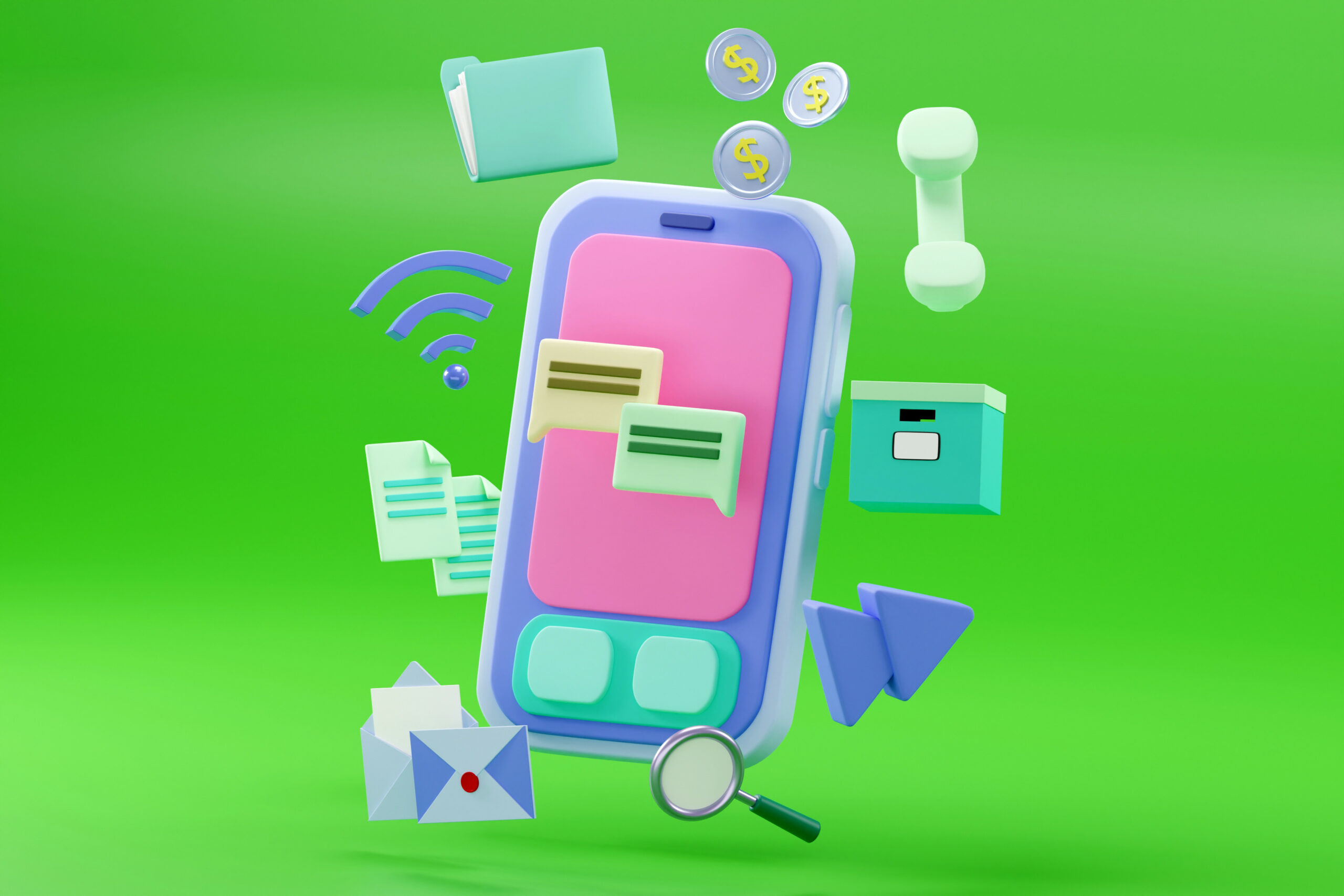SMS Marketing: Boosting direct communication with your customers

In a world where companies compete fiercely for the attention of consumers, SMS Marketing has established itself as one of the most effective tools to achieve direct and immediate communication with customers. While emails and social networks have their place within digital marketing strategies, text messages continue to stand out for their simplicity, immediacy and high open rate.
What is SMS Marketing?
SMS Marketing consists of sending text messages to a database of users who have given their consent to receive commercial or informative communications from a brand. Through this channel, companies can send promotions, reminders, updates or any information relevant to their audience, directly to customers’ mobile phones.
What makes this tool special is its ability to reach directly, without going through saturated inboxes or relying on social media algorithms.
Why is SMS Marketing so effective?
SMS Marketing stands out for several reasons that make it indispensable in an omnichannel marketing strategy:
1. Unmatched open rate
Text messages have an open rate of close to 98%, far exceeding other channels such as email marketing. In addition, most SMS messages are read within three minutes of being received. This means that messages get straight into the hands of users, achieving almost immediate exposure.
2. Direct and instant communication
Unlike other platforms, such as social networks or emails, SMS arrives directly to the user’s phone inbox, without intermediaries or filters. This immediacy makes SMS an excellent tool for urgent communications, such as time-limited promotions or appointment reminders.
3. Personalisation and segmentation
SMS Marketing allows easy personalisation, which increases its effectiveness. Including the customer’s name, personalising the message based on their buying behaviour or segmenting recipients according to their interests ensures that the content is more relevant to each user. This personalisation not only improves customer relationships, but also increases conversion rates.
4. No internet connection required
One of the great benefits of SMS Marketing is that it does not rely on an internet connection, allowing brands to reach their customers at any time, regardless of whether they have access to Wi-Fi or mobile data. This factor makes it a reliable and accessible channel for all users with a mobile phone.
5. Cost-effectiveness and high return on investment (ROI)
Compared to other channels, SMS Marketing is a cost-effective strategy. The costs of sending messages are low, and due to the high conversion rate it offers, it generates a significant ROI. Brands can impact their customers without the need for large marketing budgets, achieving remarkable results with little investment.
How can your business leverage communication through SMS Marketing?
To maximise the benefits of SMS Marketing, it is important for businesses to follow some best practices to optimise the user experience and ensure that messages are well received.
1. Ask for user consent
The first step is to get users’ consent to send them messages. Make sure customers voluntarily opt-in and know what kind of messages they will receive. This will not only help you comply with data protection regulations, but will also ensure that your messages reach an interested audience.
2. Be clear and concise
SMS has a character limit, so it is essential that your message is short, clear and to the point. Define your objective at the outset and write text that communicates value quickly, such as exclusive offers, reminders or direct links to your online shop.
3. Offer relevant content
For your SMS campaigns to be effective, it is essential that the content is relevant to users. Send personalised offers, exclusive promotions or useful information based on their interests or shopping behaviour. Relevance is key to generate interaction and prevent your messages from being ignored.
4. Include a clear call to action
Every SMS should include a clear and direct call to action (CTA). Whether you are inviting the customer to take advantage of an offer, visit your shop or download a coupon, make sure the CTA is attractive and easy to understand. The goal is to guide the customer to the action you want them to take.
5. Choose the right time to send messages
Timing is crucial in SMS Marketing. Avoid sending messages at inappropriate times, such as very early in the morning or late at night, as this can cause annoyance. Also, schedule your messages at strategic times, such as before special events or during promotional campaigns, to maximise their impact.
SMS Marketing use cases
SMS Marketing can be used in many ways to strengthen communication with customers:
- Promotions and discounts: Send exclusive coupons, limited time offers or special promotions to entice customers to make a purchase.
- Appointment reminders: Ideal for services that require appointment management, such as clinics, beauty salons or doctors’ surgeries. SMS reminders reduce no-show rates.
- Delivery updates: Keep your customers informed about the status of their orders or shipments. Text messages with follow-up updates build trust and enhance the customer experience.
- Satisfaction surveys: Send short satisfaction surveys after a purchase or service to get valuable feedback and improve your customer service.
Conclusion
SMS Marketing is a powerful tool that allows brands to improve their communication with customers in a direct, personalised and effective way. With extremely high open rates and a considerable conversion rate, this strategy can make a huge difference to the success of your marketing campaigns. By implementing best practices, such as respecting user consent, personalising messages and choosing appropriate delivery times, businesses can significantly boost their results and improve customer relationships.
Are you ready to integrate SMS Marketing into your strategy? Now is the time to harness its potential and transform your communication!
